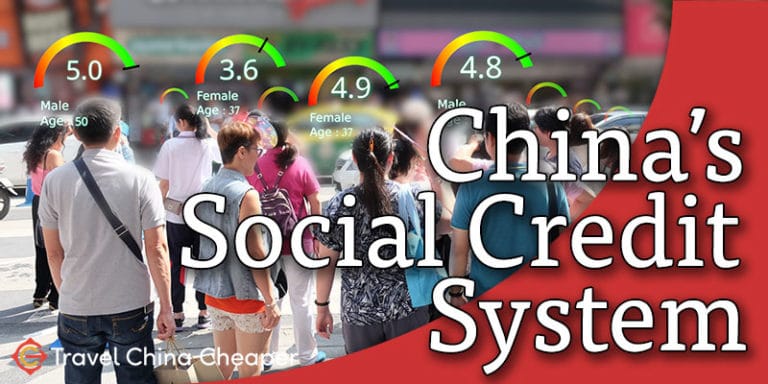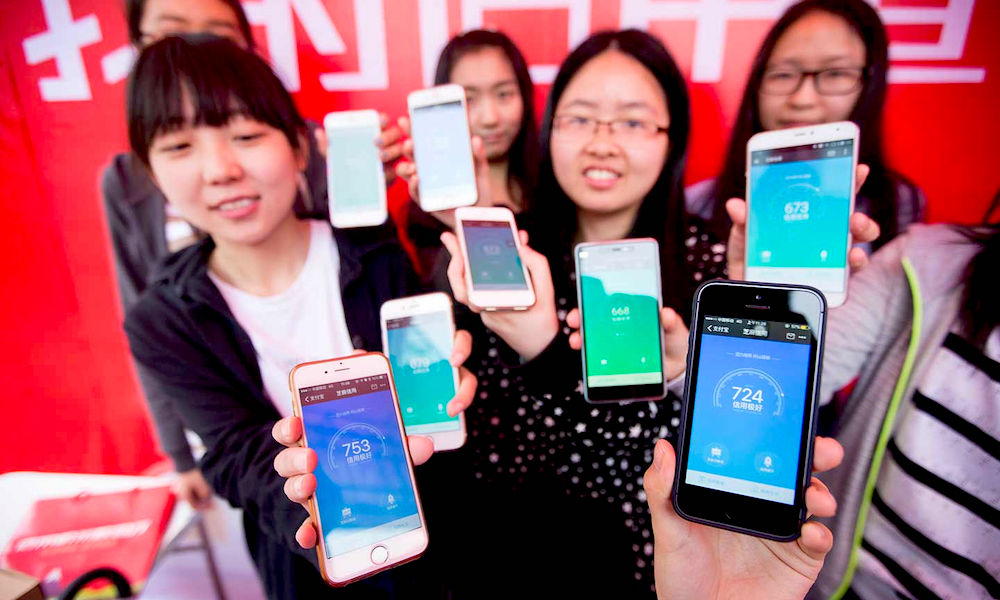



VIDEO: SILICON VALLEY INSTALLING CHINESE STYLE
SOCIAL CREDIT SCORING SYSTEM
Hong Kong Protest Against Chinese Facial Recognition And Social Credit Score
Millie Weaver: Hong Kong - China's Hostage
In Trade War With US
CHINESE STYLE "SOCIAL CREDIT RATING"
IN AMERICA?
BY C. MITCHELL SHAW
republished below in full unedited for informational, educational and research purposes:
Among China’s totalitarian policies, perhaps one of the most egregious — besides, of course, a limit on how many children a couple may have — is the invasive “Social Credit System.” If you are unfamiliar, yes, it’s as bad as it sounds. Since 2014, citizens are given a rating (similar to a credit score) on how well they behave. Their “Social Credit Rating” covers things such as whether a citizen jaywalks, buys products made in China, smokes in a non-smoking area, and what they post and share online.Those who play by “the rules”— only posting or saying good things about the Communist government, take their own parents to the doctor, make charitable donations, and avoid associations with “questionable” characters and organizations — are given a high score and put on a Red list (similar to a “white list,” with a commie twist.) Those who smoke where they are not supposed to, play too many video games, criticize the government, neglect sweeping the sidewalk in front of their homes and businesses, or play their music too loud are given a low score and placed on a Black list.Those who are “blacklisted” pay higher rates for electricity, may not be able to purchase high-speed Internet service, may not be able to get their kids into better schools, or — in some cases — banned from leaving the country on either business or pleasure.Blacklisted citizens are also routinely shamed by having their pictures and addresses published on government-owned television and social media platforms. While China’s program is not yet nationwide, it seems to be having the desired effect on those who suffer under it. A recent “poll” shows that roughly 80 percent say they favor it. Could that be because — having no choice in the matter — agreeing that the program is good is a sure way to avoid being dinged for criticizing it. How do you say “catch 22” in Mandarin?Looking at that list, two things stand out to this writer: First is the question of how difficult it must be in China to buy anything made anywhere else. It is difficult enough to buy anything in America that is not made in China. Second is the realization of just how much surveillance would be needed to keep track of all of the data required to compile such a rating.That second point may soon become an issue in the United States, because the Tech Tyrants in Silicon Valley are looking to create a similar program for this country. In fact, some components of it are already up and running. Earlier this year, the New York State Department of Financial Services cleared life-insurance companies to base premiums on what they see in your social-media posts. So, a selfie showing a cigar and a beer while eating a marbled steak could go into the math that raises your cost of insurance, while an upload from your Fitbit showing that you’ve walked 200 miles and lost 25 pounds in the last four months might get you a lower rate.Imagine getting kicked out of a restaurant for complaining too loudly about the lousy service, only to find that you are now on a nationwide list banning you from scores of restaurants and bars. Because that is exactly what PatronScan does. The subsidiary of a Canadian software company named Servall Biometrics, PatronScan sells businesses an ID scanner to “verify” a patron’s ID card and search a national database — shared by all businesses using PatronScan — and tell them if you are a troublemaker. While the service would be helpful in blocking patrons who may get drunk and start a fight or sexually assault someone, it could also be used to “even the score” if you refuse to pay for a meal that was late arriving and undercooked when it did finally arrive.Other services, such as Airbnb, Uber, and even WhatsApp have already nearly perfected their own version of this without the need of an outside “rating” company. Airbnb, for instance, reserves the right to boot you from its service without stating a reason. Presumably, the ban would be related to complaints from Airbnb hosts, but without transparency, there is no way to know how valid those complaints are. Airbnb’s competitors have similar policies.Uber announced in May that it not only allows passengers to rate drivers (which has always been the case), but now allows drivers to rate passengers. Uber reserves the right to ban passengers whose rating is “significantly below average.”And WhatsApp will ban you if too many other users block you. So, being unpopular could lead to being banished from communicating with anyone else who has WhatsApp as their preferred method of text and chat.Considering the incestuous relationship between Big Tech and Big Government — through which the Surveillance State leans heavily on the culture of surveillance — it is not difficult to imagine the emerging “Social Credit Rating” system in America turning into a method by which minor crimes or social infractions are punished by “offenders” being deprived of basic means of communication, transportation, dining, and entertainment. Such people could quickly find themselves on the outside of society looking in.Also, considering the frequency with which Big Tech finds itself standing on the precipice of Big Government regulation, it is not difficult to imagine Big Government taking over the “administration” of such “Social Credit Rating” systems — leading to even greater government surveillance and intervention.Most of this could be avoided by users carefully reading over end user license agreements and rejecting anything that diminishes their rights as well as refusing to patronize businesses that use invasive platforms to create a database of patrons and their “worthiness.”_____________________________________________________________SEE OUR PREVIOUS POSTS ABOUT CHINA'S "SESAME CREDIT":